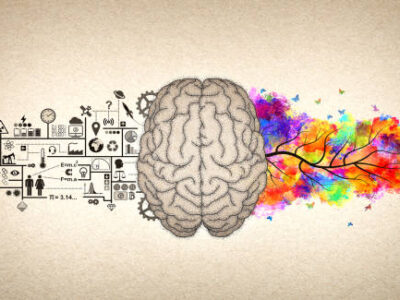Acute Stress Disorder and Recovery: Acute Stress Disorder (ASD) is a mental health condition triggered by traumatic events and cause intense emotional and physical reactions. Understanding its symptoms, diagnosis, and recovery pathways is important for timely intervention. At Live Again India, we prioritize mental wellness and offering tools and support to help individuals rebuild their lives. This article will help in exploring and understanding the dynamic of ASD, its distinction from normal stress, and actionable steps toward healing.
What is Stress?
In psychology, stress refers to a state of emotional strain and pressure. It is a form of psychological and mental discomfort. While mild stress can be beneficial by enhancing motivation, improving focus, and sharpening responses to challenges, but excessive stress can have serious health consequences. It may increase the risk of conditions such as heart disease, high blood pressure, digestive issues, and mental health disorders like anxiety and depression. Additionally, it can worsen existing medical conditions.
Stress can stem from external factors, such as work deadlines or financial difficulties, but it can also arise from internal perceptions. For example, a student who believes they must achieve perfect grades might experience overwhelming anxiety, even when their performance is objectively good. This internal pressure can make situations feel more stressful than they actually are.
Stress is the body’s natural response to perceived challenges or threats. It activates the “fight-or-flight” mechanism within the body, with releasing hormones like cortisol and adrenaline. Short-term stress can enhance focus and productivity, but on another hand chronic stress can disrupts daily life, and may lead to fatigue, irritability, and many physical & psychological complications. While manageable stress is universal, but overwhelming stress can escalate into disorders like ASD. Recognizing stress patterns is the first step toward mental wellness.
What is Acute Stress Disorder?
Acute Stress Disorder and Recovery: Acute Stress Disorder (ASD) develops within days of exposure to a traumatic event, such as accidents, violence, or natural disasters. Symptoms may include dissociation, flashbacks, and severe anxiety, and that may persist for up to a month. Unlike general stress, ASD impairs daily functioning and requires professional intervention. ASD often leads to PTSD if untreated. Live Again India emphasizes early diagnosis through clinical evaluations and trauma-focused therapies to prevent long-term psychological damage.
How is ASD Different from Normal Stress?
Normal stress arises from everyday challenges and subsides once the stressor is removed. ASD, however, stems from trauma and involves intense, persistent symptoms like emotional numbness and intrusive memories. While stress may cause temporary discomfort, ASD disrupts relationships, work, and self-care. Physical symptoms (such as, rapid heartbeat) is more severe in ASD. Timely therapy is essential for ASD recovery.
The Difference between ASD and Post-Traumatic Stress Disorder (PTSD)
ASD and PTSD share symptoms like hypervigilance and nightmares but differ in duration. ASD occurs 3 to 30 days of post-traumatic experience, while PTSD is diagnosed if symptoms persist beyond a month. ASD often includes dissociation, whereas PTSD involves chronic emotional detachment. Early treatment of ASD reduces PTSD risk. Both disorders benefit from trauma-focused therapy, but ASD’s shorter timeline allows quicker recovery with structured support and therapeutic intervention.
Acute Stress Disorder and Recovery: Symptoms of Acute Stress Disorder.
Dissociation: Dissociation creates a feeling of detachment from oneself or surroundings, and make reality seem distant or unreal. Trauma survivors may feel as though they are watching their life from the outside or experience memory gaps. This symptom disrupts cognitive functions, and affects decision-making, emotional regulation, and daily interactions, and lead to confusion and distress.
Intrusive Memories: Individuals with ASD experience involuntary and distressing flashbacks or nightmares related to the traumatic event. These vivid recollections trigger intense emotional responses, such as fear, panic attacks, and difficulty concentrating. The constant replaying of trauma interferes with daily life, and can make it hard to focus on work, relationships, or daily routine tasks, and can increase overall emotional distress.
Avoidance Behaviors: Trauma survivors may actively avoid places, people, conversations, or activities that remind them of the traumatic experience. This behavior leads to social withdrawal, emotional isolation, and difficulty engaging in daily responsibilities. Over time, avoidance reinforces fear and prevent emotional processing and can lead to loneliness, depression, and sense of helplessness.
Negative Mood: ASD often causes persistent negative emotions such as, sadness, guilt, shame, or anger. Affected individuals struggle to experience joy or pleasure in activities they once enjoyed. These mood disturbances contribute to low self-worth, emotional exhaustion, strained relationships, and make it difficult to regain a sense of normalcy or hope.
Hyperarousal: Individuals remain in a heightened state of alertness and constantly scan for potential threats in their surroundings. Symptoms include irritability, difficulty relaxing, and exaggerated startle responses. This constant state of tension leads to physical exhaustion, difficulty concentration, and strained social interactions, as even minor triggers can provoke intense reactions.
Sleep Disturbances: ASD disrupts sleep patterns, cause insomnia, frequent awakening, or restless sleep. Individuals may struggle with falling or staying asleep due to racing thoughts, nightmares, or an overactive stress response. Poor sleep quality further leads to fatigue, difficulty focusing, mood swings, and worsening emotional instability.
Emotional Numbness: Many individuals experience a sense of emotional detachment or numbness, feeling disconnected from their own emotions or relationships. They may struggle to express feelings or engage with loved ones, leads to social withdrawal. This emotional shutdown prevents meaningful interactions and contributes to feelings of loneliness and alienation.
Physical Symptoms: ASD often manifests through physical discomfort, such as headaches, dizziness, muscle tension, nausea, or gastrointestinal issues. These physical symptoms arise from prolonged stress responses and can further impact daily functioning, and can make it difficult to engage in work, social activities, or self-care.
Impaired Functioning: ASD significantly disrupts daily life and make it difficult to maintain routines, work responsibilities, or social obligations. Individuals may struggle with decision-making, concentration, or motivation. This decline in functioning affects personal and professional life, and may lead to frustration, self-doubt, and an increased risk of long-term mental health issues.
What Causes Acute Stress Disorder
It is not clear, why people react differently to traumatic events. There are many theories, in which one theory involves the concept of “fear conditioning,” where the body associates certain stimuli with a traumatic experience, and trigger a fear response even when no real danger is present. For example, if someone was involved in a serious car accident during heavy rain, they might later feel intense fear and anxiety whenever they drive in rainy conditions, even if the situation is safe.
Some individuals adapt through extinction learning, a process where repeated exposure to the trigger in a safe environment gradually decrease the fear response. However, if this doesn’t happen, it can lead to acute stress disorder and potentially PTSD.
How ASD Affects Mental Health
Untreated ASD can spiral into depression, substance abuse, or PTSD. Emotional numbness can strain relationships, while hyperarousal can leads to burnout. It also can lead to social withdrawal and isolates the individual by deepening the feeling of hopelessness. Early intervention with therapies and counseling can foster resilience. Live Again India’s holistic approach combines therapy, community support, and self-care tools to rebuild mental health.
Live Again India: Your Partner in Mental Wellness
Acute Stress Disorder and Recovery: You are not alone. Live Again India provides trauma-informed care through experienced therapists, support groups, and educational resources. Our programs emphasize empowerment and helps individuals reclaim control over their lives. Visit www.liveagainindia.com to explore personalized recovery plans.
If you are experiencing any mental health issue, or know someone, who is suffering. Seek Professional Help and talk to your mental health expert. Your mental health care is our priority. Your life is precious; take care of yourself and family. You are not alone. We are standing by you. Life is beautiful. Live it fully. Say yes to life. Welcome to life.



